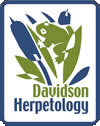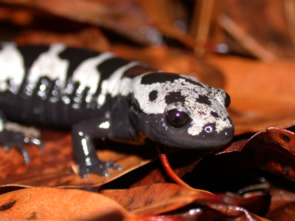
Ambystoma opacum
Photo by JD Willson
Description: The marbled salamander is a stocky, medium sized salamander. Marbled salamanders reach an adult size of 3.5 to 5 inches in length. They are gray to black in color with silvery white cross bands on males and grayish cross bands on females. The cross bands can vary dramatically between individuals with some individuals being striped or uniformly black. All marbled salamanders have black undersides. Recently metamorphosed individuals are brown or gray with light speckles. The larvae are dark brown or black with bushy gills and light spots the form a line on each side. They have a long dorsal fin from the tail to just behind the front arms.
Habitat/Range: Marbled salamanders range from the northeast United States down through Georgia and across the Gulf states to Texas. They are also found northward in Tennessee, Kentucky, and Indiana. They live in woodlands near vernal pools where larvae develop. They may be inactive and underground during the hot summer months.
Diet: The marbled salamander feeds primarily on terrestrial invertebrates such as worms, spiders, snails, centipedes, and a variety of insects.
Reproduction: Mating takes place on land, and then the females will move to dried vernal pools or other soon-to-be flooded areas to lay eggs. The females guards the eggs in a nest under a log, leaf litter or other debris until the area fills with water and the larvae emerge from their eggs.
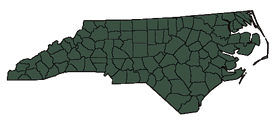
The shaded region represents the range of the marbled salamander in North Carolina.
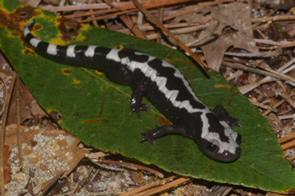
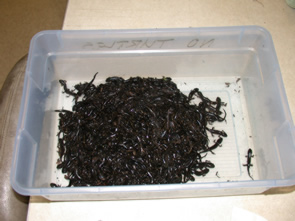
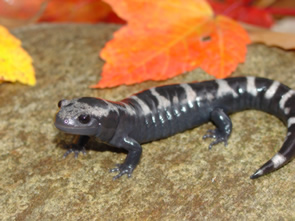
Like many other salamander species, large numbers of marbled salamanders may be captured if sampled during the breeding season.
Photo
by JD Willson
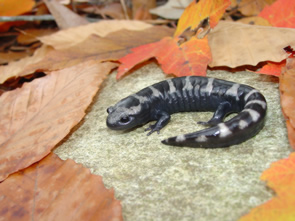
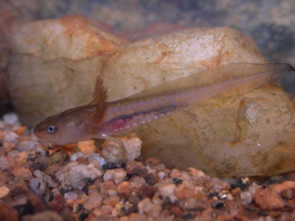
Photo D Stevenson
A marbled salamander larvae.
Photo by JD Willson
